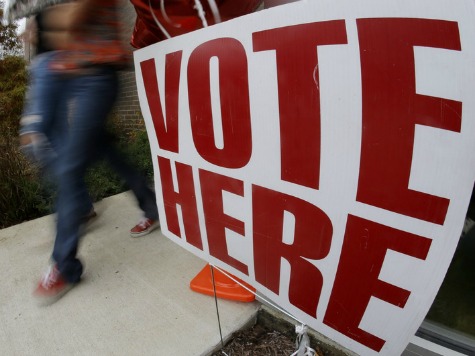
The United States Sixth Circuit Court of Appeals has affirmed a lower court’s injunction against Ohio for limiting expensive early voting in Ohio as well as new prohibitions on registering and voting simultaneously. Ohio had passed election law changes which curtailed the length of early voting and eliminated the time where people could register to vote and vote simultaneously during “Golden Week.”
This means that Ohio is barred for now from preventing individuals from registering to vote and voting simultaneously before election day. It also means that Ohio must allow voting on days contrary to Ohio law.
Ohio’s Golden Week was a core component of the Obama’s campaign effort to win Ohio’s Electoral College votes in 2008 and 2012 by bringing unregistered voters to the polls, registering them, and voting at the same time. It resulted in multiple instances of voter fraud, including Obama campaign staff who illegally registered in Ohio and cast ballots during Golden Week.
In response to the problems and expense associated with Golden Week and expansive early voting, the Ohio legislature changed the laws. Groups such as the ACLU then challenged the changes in federal court, alleging that they violated the 14th Amendment and the Voting Rights Act because blacks were disproportionately affected.
The lower court had issued a preliminary injunction stopping the change, and the Sixth Circuit Court of Appeals upheld the injunction yesterday.
Some studies have shown that early voting does not increase turnout. Nevertheless, progressive groups rely on early voting to mobilize the Democratic base over a longer period of time.
Under the Constitution, states have the power to set the times, places and manner of holding elections, even for federal offices. The federal Voting Rights Act prohibits racial discrimination in voting. Usually, Section 2 of the law is used to attack at-large voting systems where racial minorities do not have sufficient at-large support to win office.
The plaintiffs’ use of Section 2 in Ohio is unconventional.
Section 2 requires statistical circumstances to interact with a list of social and historical circumstances to deny minorities the opportunity to elect candidates of choice. Section 2 requires that an election law change to have something more than a statistical disparity in how an election law change affects minorities.
The Sixth Circuit, in preserving the injunction against Ohio, seems to have ignored the requirement that the Voting Rights Act requires more than a statistical disparity in results, thus setting up an appeal to the United States Supreme Court because other federal circuits already disagree and have ruled that mere statistical disparities do not justify a federal lawsuit.
For years, leftist groups such as the ACLU have sought to use the Voting Rights Act to undermine state control of elections by looking for a way to attack “process” issues. Process issues include administrative rules – voting hours, places, registration rules, and so forth. The Voting Rights Act did not provide a very effective means to attack process rules – until this decision by the Sixth Circuit Court of Appeals.
The Voting Rights Act bans racial discrimination, but the Sixth Circuit converted the law into one focused on economics:
Second, the district court concluded that the elimination of Golden Week “burdens the voting rights of lower income and homeless individuals” because the record reflected that such individuals “move frequently” as well as “lack access to transportation,” which combine to make it harder for such individuals to maintain accurate registration. Thus, the ability to register and vote on the same day “can make the difference between being able to exercise the fundamental right to vote and not being able to do so.”
The Supreme Court has never adopted the legal proposition that the Voting Rights Act protects economic classes instead of racial classes from discrimination. The decision by the Sixth Circuit marks one of the first success stories of those seeking to push the frontiers of the law into areas designed to aid progressive and Democrat causes instead of helping racial minorities.

COMMENTS
Please let us know if you're having issues with commenting.